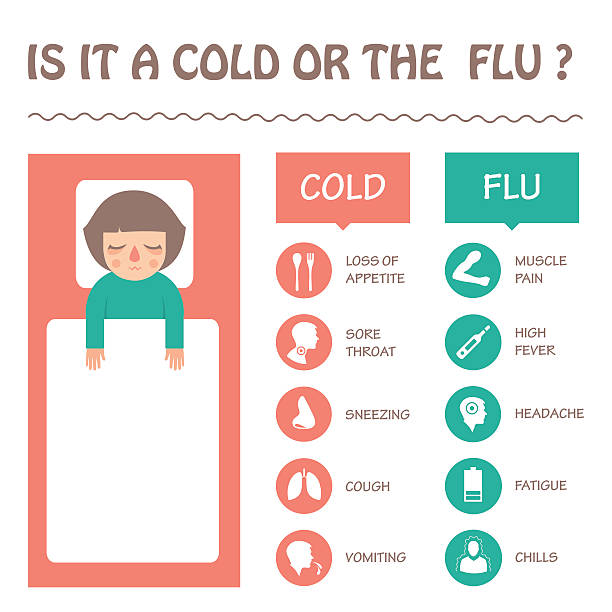Introduction
The common cold and the flu are both respiratory illnesses that can cause similar symptoms. While the common cold is typically a mild illness, the flu can be much more severe and even life-threatening, especially in certain populations. In this article, we will explore the causes, symptoms, diagnosis, and treatment of the common cold and the flu.

What is the Common Cold?
The common cold is a viral illness that affects the upper respiratory system. It is caused by a number of different viruses, including rhinoviruses, coronaviruses, and adenoviruses. The common cold is highly contagious and spreads easily from person to person through the air or by touching contaminated surfaces.
What is the Flu?
The flu, also known as influenza, is a highly contagious respiratory illness caused by the influenza virus. It spreads easily from person to person through the air or by touching contaminated surfaces. The flu can cause severe symptoms, including fever, body aches, and fatigue, and can lead to complications such as pneumonia, bronchitis, and ear infections.

Symptoms of the Common Cold and the Flu
The symptoms of the common cold and the flu can be similar, but the flu is usually more severe. Some common symptoms of the common cold include:
- Runny or stuffy nose
- Sneezing
- Sore throat
- Cough
- Mild fever
- Body aches
- Fatigue
Some common symptoms of the flu include:
- High fever
- Severe body aches
- Fatigue
- Dry cough
- Sore throat
- Runny or stuffy nose
- Headache
- Chills
- Nausea and vomiting
Diagnosis of the Common Cold and the Flu
To diagnose the common cold or the flu, your doctor may perform a physical exam and ask about your symptoms. They may also order a rapid flu test or a respiratory culture to confirm the diagnosis.
Treatment of the Common Cold and the Flu
The treatment for the common cold and the flu depends on the severity of your symptoms. Some common treatments include:
- Over-the-counter pain relievers: To relieve pain and reduce fever
- Decongestants: To relieve stuffy nose
- Cough syrup: To relieve cough
- Antiviral medications: To treat the flu, antiviral medications such as Tamiflu can be prescribed to shorten the duration of the illness and reduce the severity of symptoms
Prevention of the Common Cold and the Flu
To prevent the common cold and the flu, it is important to practice good hygiene, including:
- Washing your hands frequently with soap and water
- Covering your mouth and nose when coughing or sneezing
- Avoiding close contact with people who are sick
- Staying home when you are sick
Getting a flu vaccine is the best way to prevent the flu. The flu vaccine is recommended for everyone 6 months of age and older, especially those who are at higher risk for complications, such as young children, older adults, and people with chronic medical conditions.












